That's all for this week...published at 16:08 BST 22 June 2018
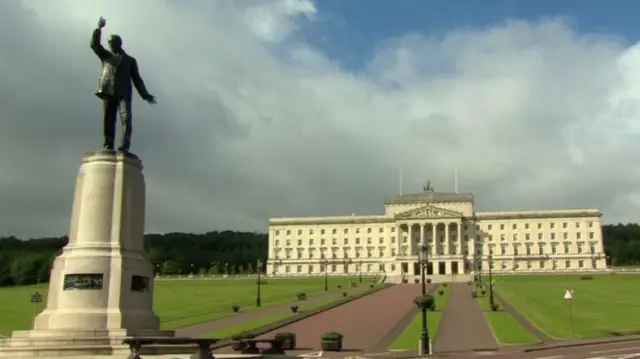
Sir Patrick calls time on today's session and a sunny weekend beckons.
We'll be back on Tuesday morning for more from the inquiry - join us then!
Renewable Heat Incentive Inquiry examining botched energy scheme
Ex-chair of Ulster Farmers' Union's poultry committee Tom Forgrave gives evidence
Inquiry set up after public concern over scheme's huge projected overspend
Retired Court of Appeal judge Sir Patrick Coghlin chairing inquiry at Stormont
Public evidence sessions expected to last into autumn 2018
Iain McDowell and Robin Sheeran

Sir Patrick calls time on today's session and a sunny weekend beckons.
We'll be back on Tuesday morning for more from the inquiry - join us then!
 BBC News NI
BBC News NI
An expansion plan by poultry giant Moy Park effectively drove their producers into the RHI scheme in large numbers, the inquiry was told.
The company aimed to increase its weekly target from four million to six million birds between 2010 and 2018.
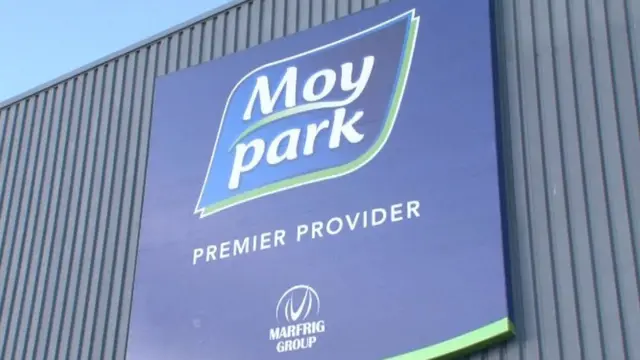
Senior executives were recommending the scheme to farmers, highlighting the "great payback" on offer due to the overgenerous subsidy.
Moy Park estimates that 62% of its producers are on claimants the scheme.
Mr Forgrave was given a copy of the final report on the poultry sector's use of the RHI scheme but was asked by its author not to let DETI know that he had it.
The poultry farmer later met officials from the department to discuss it but he didn't reveal to them that he'd already seen it.
He tells the inquiry that he "respected [Mr Ellis'] wishes".
 Image source, Getty Images
Image source, Getty ImagesMr Forgrave was not cited in the paper as a source for some of the information that it contained and he says it didn't strike him as being odd.
"I was quite happy not to be named," he adds and he says that when he met the DETI officials he didn't tell them that he'd been involved in it.
"There was nothing underhand; there was nothing untoward."
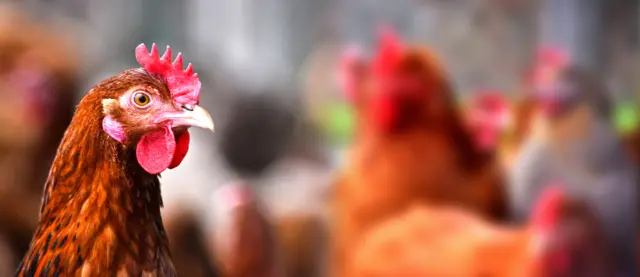 Image source, Getty Images
Image source, Getty ImagesAfter Mr Lunny goes on a long, complex delve into the economics of chicken farming, most people in the room look a little bit confused - there's even a yawn or two.
Inquiry panellist Dame Una O'Brien admits she's a "non-farming expert" and "shan't look at chicken in quite the same way ever again".
Mr Forgrave insists he was "the right guy" to ask about what was happening on the ground in the poultry sector in relation to the RHI scheme.
Mr Ellis had "no experience of poultry", he says, and he tells the inquiry that he gave factual information to the civil servant.
 Image source, Getty Images
Image source, Getty ImagesHe denies trying to "stretch the numbers or input new numbers that I couldn't stand over".
"There was no element of exaggeration or adding anything to it."
As part of DETI's work on reducing the RHI scheme subsidies, it wanted to get a better understanding of how the initiative was benefitting the poultry sector.
It asked Cathal Ellis (below), a civil servant in the agriculture department, to draw up a paper detailing what was happening on the ground in terms of the scheme.
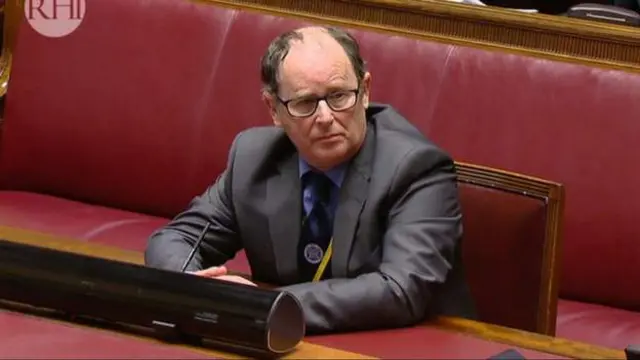 Image source, RHI Inquiry
Image source, RHI InquiryAs part of his research, Mr Ellis contacted installers of biomass boilers to find out information about heat production costs, etc.
He also met Mr Forgrave in July that year - Mr Forgrave shared data from his farm, which the official incorporated into his research paper on the poultry sector's use of the scheme.
When Mr Ellis appeared before the inquiry in April, he said he "didn't really have any concerns that Mr Forgrave had vested interests in the scheme.
In the summer of 2015, Mr Forgrave became aware impending changes to the subsidies that were on offer through the RHI scheme.
He'd received the information from contacts within the energy industry who had been in contact with civil servants at Stormont Department of Enterprise, Trade and Investment (DETI) who were running the initiative.
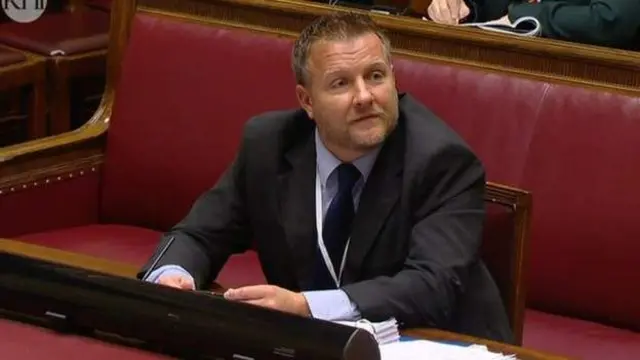 Image source, RHI Inquiry
Image source, RHI InquiryMr Forgrave wrote to DETI official Stuart Wightman (above) requesting a "period of grace" for farmers who were in the process of installing boilers and applying for the scheme.
Mr Wightman said the department was considering how to deal with people who had already made investments.
Moy Park's Mr Mark has been asked by the inquiry what he meant when he described Mr Forgrave as a "top class RHI farmer!!!!!!".
He's due before the inquiry next week but in his written statement to the inquiry he doesn't suggest that Mr Forgrave wasn't doing anything inappropriate under the RHI scheme's rules.
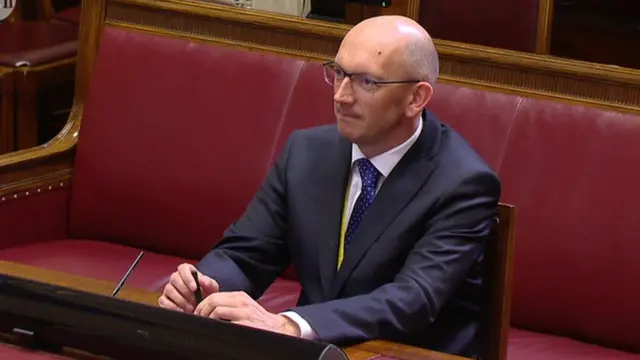 Image source, RHI Inquiry
Image source, RHI InquiryInstead, he says he knew Mr Forgrave as a "robust and competent negotiator" and "my exclamation marks were a reflection of this".
But Mr Forgrave's view is: that "the two don't tally".
Mr Forgrave was described by a senior Moy Park official in late-2015 as a "top class RHI farmer!!!!!!".
David Mark made the comment in an email to a colleague in the firm and included those six exclamation marks.
 Image source, Getty Images
Image source, Getty ImagesThe witness says the first time he saw the comment was when he was shown it by the inquiry last month.
"I'm quite shocked by his language," says Mr Forgrave, who says his two large sheds that were each to be heated with two RHI scheme boilers were only in the process of being built at that point.
It's "an awful assumption on his part, I think, to label me the way he has", he says, describing it as a "very personal, very outspoken claim - it's shocking".
Heralding the lunch break, Sir Patrick Coghlin says "this is not really the venue for pub talk, even though it's Friday".
Back at 14:10 - join us then.
Poultry farmers have "been tarred very, very heavily" with "pub talk" that they've been heating empty sheds in order to maximise their returns from the RHI scheme, claims Mr Forgrave.
"It's not justified, some of the accusations coming our direction."
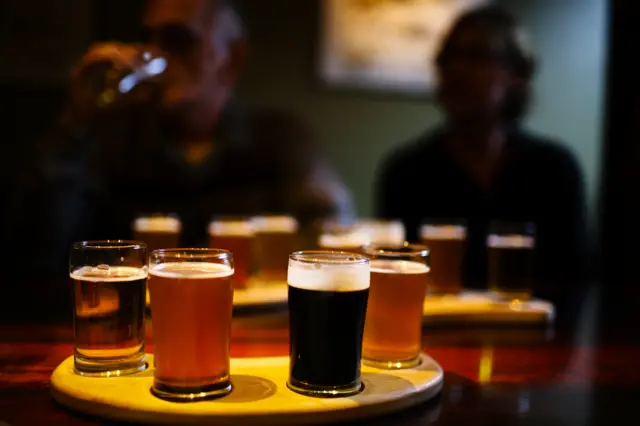 Image source, Getty Images
Image source, Getty ImagesIt would be a "false economy" for poultry farmers to heat sheds when it's not necessary to do so.
He explains that if sheds are too hot chickens won't eat and will stop growing, or they may suffer from heat stress and die: "The chickens come first."
"Also... if you're using more electricity, more [wood] pellets than you need... it's not sensible."
Mr Lunny quotes from an email sent by a Moy Park employee referring to the company's catch teams, which are sent out to gather the chickens from sheds when they are ready to be sent to factories.
"It seems to be the norm that when they arrive the heating system is fully on - they are currently going through approximately four changes of tops a night," the email states.
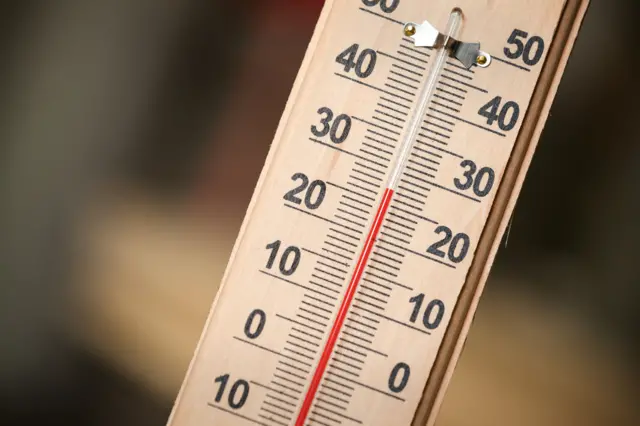 Image source, Getty Images
Image source, Getty ImagesA further email reports chicken houses with temperatures "as high as 28 to 29 degrees and the biomass is still on and the fans are not".
"It doesn't read well," says Mr Forgrave, adding that he was "shocked" when he saw it.
In his witness statement, Mr Forgrave says there's little or no opportunity for farmers to overuse heat - Moy Park checks its farmers' heating levels and overheating or underheating can affect the birds.
Mr Lunny wants to know if its possible to create a lot of heat but to ventilate sheds.
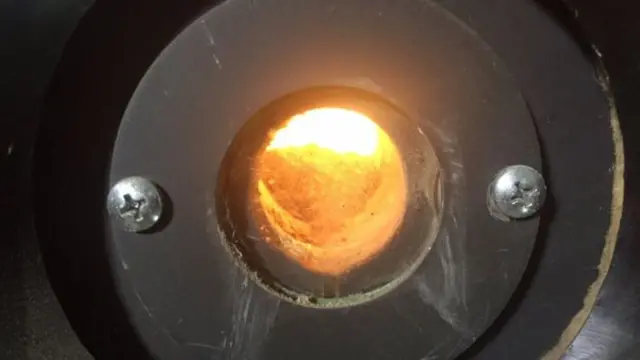
Mr Forgrave says any industry can do that but he defends his own practice: "On our own farm we've put a lot of work into looking at what the birds need for their best welfare.
"At no point have I had boilers on when they shouldn't be on."
Mr Forgrave has received £748,000 from the RHI scheme by the end of February last year.
The total cost to install his heating system been £508,652 - that includes the heating system infrastructure, fuel stores, sheds to house the boilers and bank charges and fees.
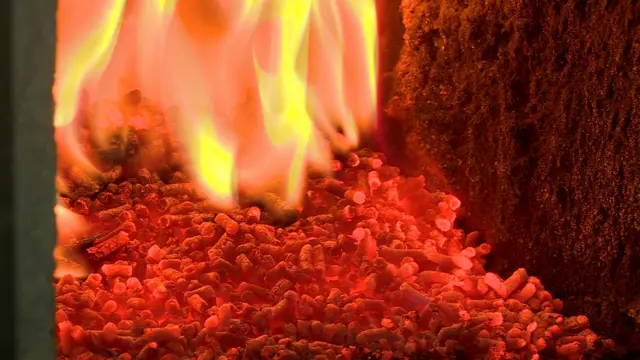
Mr Lunny says the cost for the 10 biomass boilers alone - which is all the RHI scheme is intended to subsidise - was about £370,000 and therefore Mr Forgrave has got "double what you spend back in three years".
But Mr Forgrave says "there have been these assumptions made" that the scheme offers claimants massive profits but that's not the case for poultry farmers and he argues that the "simple payback" that Mr Lunny describes doesn't allow "for all the additional costs".
"I have to pay servicing, repair and electrics, I have to pay that extra fuel."
When Moy Park's poultry farmers were using gas heating for their sheds, the firm provided a subsidy that represented about 100% of the cost.
But that dropped to about a quarter of the cost for biomass heating.
Mr Lunny puts it to the witness that the shortfall that developed between Moy Park's fuel subsidy and the actual price paid by farmers for biomass pellets "was being masked, or made up or supplemented by the very substantial RHI income".
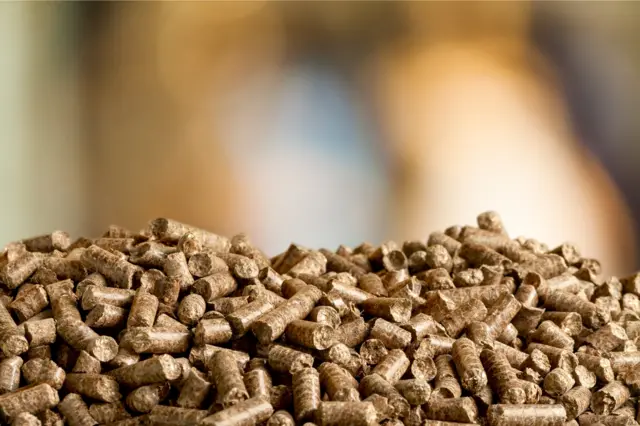 Image source, Getty Images
Image source, Getty ImagesMr Forgrave says it goes back to "the bottom line" - the commercial reality is that he has to make up the payments on the money he's borrowed or he'll be in trouble.
Panel member Dr Keith MacLean says the only reason he can see why the farmers would allow such a gap to open up was "you were getting enough from the RHI that it didn't matter".
Mr Forgrave "takes some exception" to having been "singled out" in an internal Moy Park presentation as the only farmer in Northern Ireland that installed two biomass boilers heating one poultry shed.
"I'm aware of at least two, if not three other farms that did exactly the same under the [original] tariffs [on offer through the scheme]," he says, adding that other farms have since done the same.
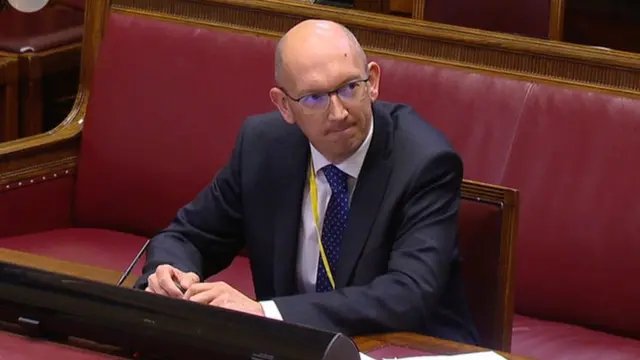 Image source, RHI Inquiry
Image source, RHI InquiryHe tells the inquiry that his decision to put two boilers in his large poultry sheds was based on several reasons, primarily to have one as a backup in case one of them failed.
Mr Forgrave says he didn't see the slides from the Moy Park presentation that listed him as the pioneer in doing that until he was shown them by the inquiry a few weeks ago.
"I was rather taken aback when I was presented [with] it."
A lot of Northern Ireland's poultry farmers signed up to the RHI scheme as a result of Moy Park presentations that outlined the benefits of it, agrees Mr Forgrave.
The inquiry barrister Mr Lunny shows the inquiry some of the promotional materials issued to poultry farmers by the firm - one document from 2014 stated that "capital investment in biomass has a great payback" through the scheme.
 Image source, Reuters
Image source, ReutersMr Forgrave agrees that's the sort of thing that would have been presented at various meetings.
Mr Lunny notes that 62% of poultry houses operated by Moy Park's farmers are being heated by boilers bought through the RHI scheme.
Biomass boiler installers attended agriculture events and promoted their products through the RHI scheme, using eye-catching phrases along the lines of like "cash for ash" and "burn to earn".
The inquiry has heard significant evidence about that type of promotion and it's a favourite subject of the inquiry chair.
Sir Patrick Coghlin asks the witness whether he had been aware of the slogans that were on display at agricultural presentations.
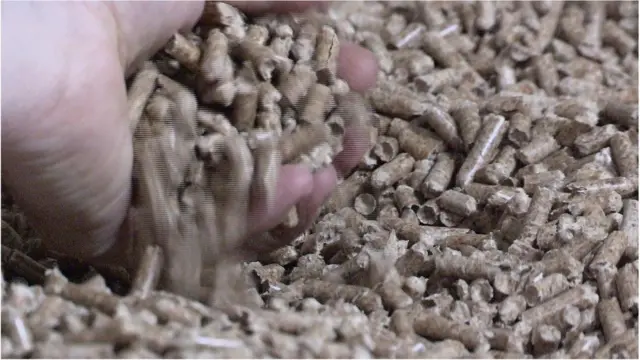
"I never heard the term 'cash for ash' until December 2016," replies Mr Forgrave and the talk between farmers was about the "significant expenditure" involved in getting their boilers up and running.
He explains that payments from the scheme didn't start reaching farmers until many weeks after their boilers were registered but they had to foot fuel bills and bank loan repayments during that time.
Sir Patrick says he find it "very difficult to come to terms" with Mr Forgrave's claim that nobody "spoke to you about the benefits of the RHI system and the money that would come from that".
Moy Park is by far the biggest poultry firm in Northern Ireland and Mr Forgrave says: "We don't have an option to go anywhere else," he says.
It made a major push to increase production in recent years - its stated aim was to increase UK production from four million birds a week to six million a week over the period 2010 to 2018.
The encouragement for its farmers to switch to hot water heating came in that context.
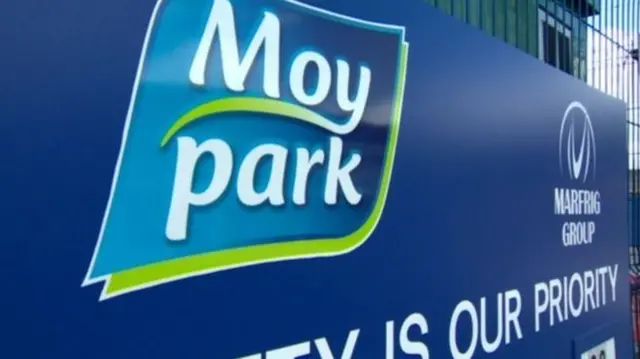
Moy Park contracts specified that new poultry sheds should adopt the system and the company subsidised 99.5% of the cost of new houses, minus the cost of boilers to heat them.
Explaining the rational for that system, Mr Forgrave says that "in a perfect world they would pay us enough for our chicken to allow us to repay the debt ourselves over 10 years".
But it works out cheaper in the long term for Moy Park to pay a significant amount towards new sheds and then a lower price for chicken and and it gives security to both parties.
"It's a clever business model," he says.
Heating poultry sheds on the traditional gas systems leads to higher humidity, says Mr Forgrave.
That, in turn, increases ammonia levels, which causes respiratory problems for the chicks, preventing them from growing to their potential, and can be harmful to people working in the buildings.
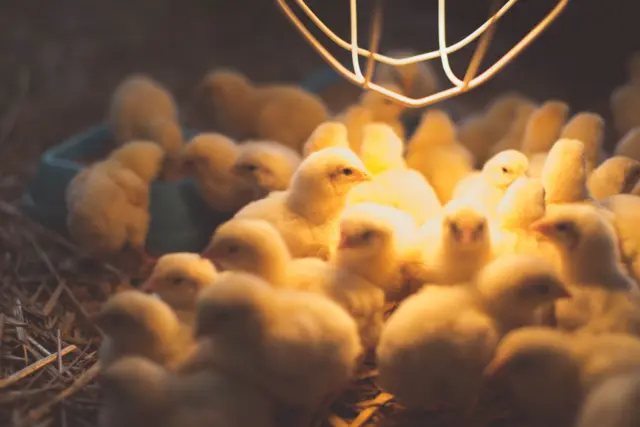 Image source, Getty Images
Image source, Getty ImagesBut using a hot water heating system fired by biomass boilers reduces the humidity level, meaning the birds are healthier and in better condition to grow.
Moy Park determined in 2013 that all new poultry sheds built by its suppliers would have to be heated by hot water systems.